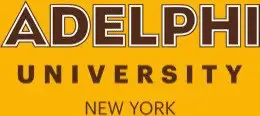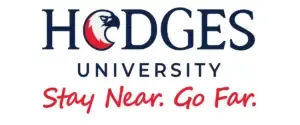17 Best Courses for Relationship & Couples Counseling
 Over the course of our lives, we will have countless relationships, some deep and lasting and others fleeting.
Over the course of our lives, we will have countless relationships, some deep and lasting and others fleeting.
Maintaining a healthy and satisfying relationship is not always smooth sailing, and most of the time, accountability for relationship problems does not lie solely with one person.
Relationship and couples counselors offer guidance and support to empower couples, families, and intimate partners to find a resolution to their relationship roadblocks, which can be an extremely helpful and healing process.
Are you considering a career as a relationship counselor, or do you want to build your relationship counseling skills to apply in your current work?
In this article, we’ll run through a variety of courses and degree programs in relationship and couples counseling to help you figure out what’s right for you.
Before you continue, we thought you might like to download our three Positive Relationships Exercises for free. These detailed, science-based exercises will help you or your clients build healthy, life-enriching relationships.
This Article Contains:
Training in Couples & Relationship Counseling
Conflict is a normal part of our social interactions and exists in almost every relationship we have. We can express differences of opinion, bicker, and even argue without fundamentally damaging the overall relationship.
But sometimes, the source of conflict or stress in a relationship is persistent, harmful, or reflects deeper issues that need to be addressed. Navigating through these problems, such as after a loss, infidelity, or significant life event, can be difficult if you’re not seeing eye-to-eye with your loved one.
For many people, it can be incredibly helpful to speak with an impartial person who can provide guidance and support to work through relationship problems, even if the solution is ending the relationship.
The path to becoming a relationship and couples counselor may look different depending on where you live, but in general, relationship and couples counselors are highly specialized, licensed mental health professionals with training in individual, couples, and family therapies (McDowell, 2018).
According to Carlson and Dermer (2017; p. xliv), “Marriage, family, and couples therapists provide preventative, developmental, educational, and therapeutic interventions,” which is a pretty tall order.
Couples and relationship counselors come from a diverse range of backgrounds, and a range of professionals can provide relationship and couples counseling, including (McDowell, 2018):
- Licensed marriage and family therapists
- Counselors
- Social workers
- Psychologists
Qualifications of a Relationship Therapist

Counselors then move to a graduate degree program and complete a master’s degree (typically two to three years) in a relevant field. You can also choose to follow a doctoral program, which normally takes between three and five years, or a clinical training program, for three to four years (American Association for Marriage and Family Therapy, n.d.).
In the United States, you need a license to be able to practice, but the criteria differ depending on the state you live in (McDowell, 2018). Generally, after you’ve acquired an accredited qualification, you need to have two years of supervised clinical experience before being eligible for licensure (American Association for Marriage and Family Therapy, n.d.).
You can obtain a license through a state licensing exam or the national exam from the Association of Marital and Family Therapy Regulatory Boards (American Association for Marriage and Family Therapy, n.d.). In some states, you can apply for certification from the National Board of Certified Counselors, which is considered equivalent to licensure (McDowell, 2018).
To hold on to your license, many states require you to top up your education and training annually (McDowell, 2018).
9 Relationship & Couples Counseling Courses
Even if you’re not headed for a career as a licensed relationship counselor, completing a course in this line of work may still be useful.
Many helping professionals wish to enhance their skills in relationship counseling to feel more equipped to manage complex interpersonal dynamics when working with more than one client at a time. Completing a relationship counseling course can also contribute to your continuing professional development hours.
We’ve listed a variety of course options below that differ in length, price, and commitment. All courses can be completed online or virtually.
Gottman Method Training
The Gottman Institute is a world-renowned training facility for marriage and couples counseling founded by Dr. John Gottman and Dr. Julie Schwartz Gottman, who together hold extensive experience in the research and clinical sides of relationship counseling.
The Institute provides a selection of accredited training programs online, virtually, and in person.
- Level 1 training:
This two-day workshop provides research-based techniques and interventions to help couples manage conflict and deepen their emotional connection.
There are no entry requirements, but the course would suit social science researchers and those working in helping professions.
- Level 2 training:
Building on the foundational elements of Level 1, this three-day training expands your skills in assessment and interventions to begin using them in your clinical work.
Level 1 training is required to be eligible.
- Level 3 training:
The advanced training is delivered by a certified Gottman trainer or Drs. John or Julie Gottman themselves. These are real-time workshops offered virtually and in person. This hands-on training involves videotaped sessions, role-play, and demonstrations to refine your skills in choosing and applying interventions.
As well as completing levels 1 and 2, you’ll need a master’s degree, doctorate, or be currently completing a mental health-related graduate program.
- Certification – Clinical Training Program:
This is the final stage of the Gottman training program, which you can apply to up to two years after completing Level 3. Over the next two years, you’ll be allocated a senior Gottman therapist, who will consult and support you as you continue to apply the Gottman Method in your practice.
There are some big entry requirements, including a minimum of 1,000 hours of experience of graduate-level relationship therapy, completion of level 3, and courses in Treating Affairs and Trauma, and Couples and Addiction Recovery.
Find out more on their website.
Couples Therapy – A Practical Masterclass Online, Human Givens College
If you want to get a flavor of relationship counseling with a quick, hands-on course, Human Givens College offers a one-day workshop in couples therapy and welcomes people from helping professions or anyone interested in learning about brief solution-focused therapy.
Among many topics, you’ll learn about the best ways to create rapport with couples in therapy, how to build empathy, and how to structure therapeutic interventions. The course counts as six hours of continuing professional development.
Find out more on their website.
Certificate in Couple/Relationship Therapy, The Grove Practice
If you want to invest a bit more time into training, this foundational eight-day online course is aimed at qualified counselors, psychotherapists, and psychologists who wish to develop their therapeutic skills in couples/relationship counseling contexts.
There are taught and skills-based elements to the course, amounting to 48 hours of continuous professional development.
Some course topics include:
- The dynamics of working in triads
- Desire, differentiation, and conflict
- Endings
Find out more on their website.
Practitioner Certificate in Contemporary Intimate Partner Therapy, Contemporary Institute of Clinical Sexology
This 100% online course is suitable for qualified and practicing psychologists, psychotherapists, and counselors.
The Contemporary Institute of Clinical Sexology recognizes that many clients seeking intimate partner therapy may be multiple-partnered people involved in consensually non-monogamous or polyamorous relationships, challenging the outdated perspective that intimate relationships only exist between two people.
The course amounts to 88 hours of e-Learning modules and live skills practice sessions. Some core modules include Principles and Practices of Contemporary Intimate Partner Therapy and Addressing Sexual Themes.
Find out more on their website.
Diploma Course in Relationship Counseling, Udemy
If you want to explore theories around relationship counseling without spending too much money, this online course from Udemy may be a good introduction.
There are no entry requirements for this course, but it may be particularly useful for people with a counseling background who wish to develop their expertise in working with people. The course includes video modules and a training manual, covering topics like Roles within Conflict, Working Together, Patterns, and Overcoming Blocks. The course is accredited by the Complementary Therapists Accredited Association.
Find out more on their website.
Couples Therapy Advanced Certificate, Adelphi University
This two-year part-time graduate program is delivered online and involves weekly seminars, supervision, personal psychotherapy, and client work.
You need to be licensed to practice in a mental health field (e.g., social worker, art therapist, psychologist) or eligible for licensure to be eligible for this certificate.
The course offers an integrated approach to couples therapy, incorporating family systems and psychodynamic theory perspectives, with an emphasis on transference and countertransference dynamics. Some course topics include re-married couples/blended families, gender issues, divorce and divorce counseling, and sexuality and sex therapy.
Find out more on their website.
8 Degree Programs to Consider
If you’re serious about a career as a licensed relationship counselor, a degree program could be a better option for you. It’s typical for a degree program to include a practicum (client work) and an internship alongside taught components.
When choosing a program, it’s important to look at whether it’s accredited by a recognized institution. Accreditation essentially means the course syllabus integrates the values and ethical and professional standards of a particular governing body.
Many degree programs provide specific modules in relationship counseling while also offering more foundational psychology courses that are important for working with clinical assessments, diagnosing psychological disorders, and making sure your practice is evidence based.
Master of Arts in Marriage and Family Therapy, Northcentral University
This was the first distance-learning degree to be accredited by the Commission on Accreditation for Marriage and Family Therapy Education (COAMFTE). The syllabus covers core areas of human development, marriage and family therapy, marriage and family studies, professional studies, and research.
The practicum requires you to accumulate 500 hours of client contact in your local area and 100 hours of supervision. Among several entry requirements, you need to have a bachelor’s degree from an accredited institution.
Find out more on their website.
MEd/EdS and MAE/EdS in Marriage and Family Counseling, University of Florida
This master’s program provides students with the fundamental skills to become registered interns and, following two years of clinical experience, gain licensure as a marriage and family therapist or mental health counselor in Florida.
Students completing a thesis will receive a Master of Arts instead of a Master of Education.
The course takes two to three years to complete and advocates an ‘eco-systemic approach,’ where students become skilled in managing solution-focused dialogue between couples and family members. The degree comprises clinical (e.g., diagnosis and treatment of mental disorders) and counseling courses, as well as a practicum, internship, and supervision.
Find out more on their website.
Master’s in Clinical Mental Health Counseling, Hodges University
This online Master of Science degree is accredited by the Council for Accreditation of Counseling and Related Educational Programs (CACREP).
This course would suit adult learners in need of flexible study hours.
The syllabus covers key clinical and counseling elements such as Counseling in Community Settings, Human Sexuality, and Substance Abuse Theory and Prevention Methodology. As with other degree programs, there are essential practicum and internship components.
Find out more on their website.
Master of Science in Marriage and Family Therapy, Capella University
This graduate degree program is accredited by COAMFTE.
The course is delivered online and in person, and the syllabus comprises 16 courses, 2 residencies, and an internship.
Some examples of modules include Diversity and Social Justice in Systemic Family Therapy, Systemic and Group Interventions for Grief, Loss, and Trauma, and Marriage and Family Therapy Theory and Practice. Among an array of entry requirements (some more administrative in nature), you’ll need to have an accredited or internationally recognized bachelor’s degree.
Find out more on their website.
Master of Arts in Marriage, Couple and Family Therapy, University of Central Florida
Accredited by CACREP, this course aims to help students combine their research, theory, and practical experiences. The program emphasizes intensive fieldwork in the university’s Community Counseling and Research Center, and involves a practicum and an internship.
It’s delivered face-to-face so is not suitable for non-local students. Some of the course modules include Foundations of Multicultural Counseling, Diagnosis and Treatment, and Individual Psychoeducational Testing.
Find out more on their website.
Master of Science in Marriage, Couple and Family Counseling, Stetson University
This course aims to equip therapists to work with individuals, couples, families, and groups and is accredited by CACREP.
Upon completion of this degree, you’ll be eligible to apply as a registered marriage and family therapist intern before seeking state licensure.
There are a practicum and two internships to complete and an additional 17 core courses, some of which include Sexuality Counseling, Counseling Children and Adolescents, and Family Systems.
Find out more on their website.
PhD in Couple & Family Therapy, Antioch University
If you’ve already finished a master’s degree and want to expand your skills in teaching, consultation, or supervision, a PhD may be a worthwhile option.
This doctoral program is accredited by COAMFTE and can be completed online.
The full-time structure of the program involves two years of coursework and practice and one year for a dissertation. One year of supervised clinical practice and one year of other types of experience (e.g., teaching, consultation) are required. You’ll need a clinical master’s degree in mental health to apply.
Find out more on their website.
PhD in Systems, Families, and Couples, Loma Linda University
If you’re based in California, this is the only PhD program accredited by COAMFTE in the state.
This is a minimum three- to four-year full-time program that involves two years of course work, a dissertation, 1,000 hours of client contact, and 36 units in professional development experiences.
The course curriculum is structured around nine guiding concepts, including relational systems, wholeness, empirical process, spirituality, and worldwide focus. Among a list of requirements, you’ll need a master’s degree from an accredited institution to be eligible.
Find out more on their website.
PositivePsychology.com’s Relevant Tools
If you’re looking for tools to help your clients strengthen their relationships, be sure to check out three of our hand-picked exercises from the Positive Psychology Toolkit©, which you can download for free in our 3 Positive Relationships Exercises Pack.
Here’s a quick snapshot of two included exercises you can use straight away with your couples therapy clients.
Connecting with Others by Self-Disclosure
In this exercise, clients practice answering questions that require personal disclosure. With one person acting as a listener while the other speaks, it is an opportunity for clients to get comfortable with the vulnerability inherent in self-disclosure as a means to strengthen intimacy and connection.
The Sound Relationship House Inspection
This exercise teaches couples the nine elements of the Sound Relationship House (SRH) as a metaphor for the functioning of their relationship. By having each partner rate their perception of the nine elements, couples will clarify areas of agreement and aspects of the relationship that would benefit from greater nurturing and attention.
You can access both exercises for free by downloading our 3 Positive Relationships Exercises Pack today.
A Take-Home Message
Becoming a licensed marriage and family therapist takes many years of study and client work to build the experience and knowledge you need to practice competently in this field. If you’re passionate about empowering people to rebuild and strengthen their relationships with loved ones, this can be an incredibly rewarding career choice.
If you’re already working in the caring profession, enrolling in a shorter course or workshop to develop your relationship counseling skills may be highly beneficial to your work and can contribute to your continuing education hours.
There are many courses and degree programs out there, and the number of distance learning options is increasing. Depending on where you live, the requirements for becoming a relationship or couples counselor will differ, so it’s important to check this out before making any decisions.
We hope this article has given you some useful food for thought when weighing up your options for training. If you’re sold on this career path, we wish you all the best in your next learning adventure.
We hope you enjoyed reading this article. Don’t forget to download our three Positive Relationships Exercises for free.
- American Association for Marriage and Family Therapy. (n.d.). About marriage and family therapists. Retrieved from https://www.aamft.org/About_AAMFT/About_Marriage_and_Family_Therapists.aspx
- Carlson, J., & Dermer, S. B. (2017). The SAGE encyclopedia of marriage, family, and couples counseling. Sage Publications.
- McDowell, A. (2018, December 19). Couples counselor – Marriage therapy career information. Innerbody Research. Retrieved from https://www.innerbody.com/careers-in-health/how-to-become-a-couples-counselor.html
Let us know your thoughts
Read other articles by their category
- Body & Brain (42)
- Coaching & Application (54)
- Compassion (26)
- Counseling (50)
- Emotional Intelligence (24)
- Gratitude (18)
- Grief & Bereavement (21)
- Happiness & SWB (40)
- Meaning & Values (25)
- Meditation (20)
- Mindfulness (44)
- Motivation & Goals (43)
- Optimism & Mindset (32)
- Positive CBT (25)
- Positive Communication (20)
- Positive Education (45)
- Positive Emotions (30)
- Positive Leadership (14)
- Positive Psychology (32)
- Positive Workplace (33)
- Productivity (16)
- Relationships (41)
- Resilience & Coping (34)
- Self Awareness (20)
- Self Esteem (36)
- Software & Apps (13)
- Strengths & Virtues (30)
- Stress & Burnout Prevention (34)
- Theory & Books (44)
- Therapy Exercises (35)
- Types of Therapy (58)














What our readers think
Hello Dr Brown,
Thank you for this detailed piece. It has given me hope that my dream of becoming a licenced counsellor is still possible.
I am resident in Nigeria and I have had casual sessions with friends and friends of friends with challenges in relationship. I have also seen positive outcomes in those relationships as a result of the few words I shared with them. This is who I want to be and the career path I want to tread.
I realised that you dealt more on Certificate, Master’s and PhD programs. Can you suggest institutions that I can acquire my first degree in family and relationship counselling?
I believe that will be a good start for me before Master’s and PhD.
I look forward to receiving your response.
Thank you.
Hi John,
I’m glad to hear that our post inspired you in your pursuit of becoming a licensed counselor. For your first degree in family and relationship counseling, it’s important to consider institutions that offer accredited programs, especially those recognized in Nigeria. Local universities in Nigeria, such as the University of Lagos or University of Ibadan, may have relevant programs. Additionally, online programs from international universities can also be an option, offering flexibility and a wide range of resources. Ensure that any program you choose aligns with the licensing requirements in Nigeria.
Good luck on your journey!
Warm regards,
Julia | Community Manager
Dear Dr. Helen,
I want to thank you for the marvelous article, I have been looking around a lot for answers about how and where to start a career in relationships and couple therapy. Dr. Helen, I’m a senior manager of internal audit and risk within a well-esteemed entity within this side of the world in Dubai. I had a long successful run within this career however I noticed that it’s not the processes analysis and enhancement that got me passionate about my career, it was actually the human interaction, listening, negotiating, and advising that was that kept my passion on fire throughout the journey so far.
however, I’m currently trying to shift to a different career and follow my passion for helping others but rather than helping their processes I’d like to help them personally. I would like to kindly ask you for some advice on how to do that? I mean my bachelor’s degree was in commerce major accounting and would like to pursue a master’s in psychology or something more related to relationship coaching. from your expert point of view, what could you recommend me to do, where should I start?
Genuinely appreciated
Shadi
Hi Shadi,
Glad you found this article helpful, and that’s exciting that you’re considering a new path in relationships and couples therapy.
As you’ve noted, yes, you’ll need to complete a Master’s in Psychology (or social work, therapy, etc.) The steps to follow are roughly as follows (but may differ somewhat depending on where you are located in the world):
1) Complete a Bachelor’s degree that includes coursework in psychology, social work, therapy, or a related discipline (or see if you can gain direct admission to a Master’s program off the back of your B.Com)
2) Complete a Master’s degree in psychology/therapy (specialize where possible by taking units in relationship counseling, etc.)
3) Complete a minimum number of supervised internship hours (e.g., in New York, this is 1,500 hours).
4) Undergo accreditation to practice therapy in your country or state.
5) OPTIONAL: Potentially to some additional training (e.g., continuing education, online certification) to get more expertise specifically in relationship therapy.
You can learn more about the specifics of each step (and variations re: requirements across countries/states) in our detailed guide On Becoming a Therapist if you are interested
You might also consider the route of relationship coaching! We’ve just published a blog post with certification options for this, which you can read here.
I hope this helps!
– Nicole | Community Manager